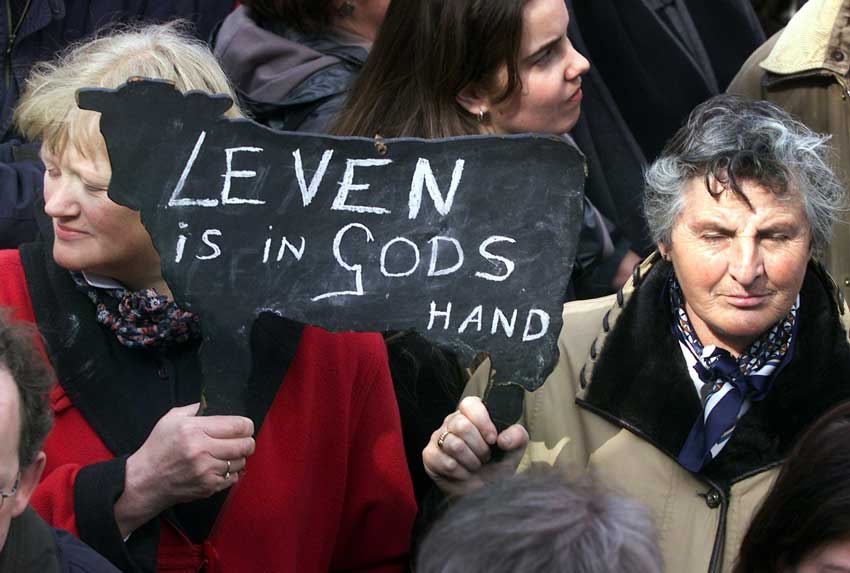
Communities of care will be essential under new regime
Legal experts and pro-life advocates warn that vulnerable sick, elderly and people with disabilities will be at risk when proposed assisted suicide legislation comes into force in New Zealand next year.
Just over 65 per cent of Kiwis voted in favour of legalising euthanasia and assisted suicide in a referendum on the issue during the 17 October general election.
The binding referendum was about whether the End of Life Choices Act 2019 should come into force next November, a piece of legislation which opponents say is deeply flawed.
The result of the referendum was released on 30 October, while preliminary results of a second referendum question on whether to legalise cannabis appeared not to gain the required support.
“There is no doubt in my mind that there are people already thinking of ways to expand this law to include more categories of people” – pro life advocate Brendan Malone
“The news that 65 per cent of New Zealanders voted in favour of euthanasia and assisted suicide being legalised in that country is terribly sad for our neighbours across the Tasman, whose vulnerable sick and elderly deserve better than a prescription of legal drugs, and the message that they are better off dead,” said Sydney Archbishop Anthony Fisher OP, one of the world’s leading bioethicists.
Pro-life advocate Brendan Malone said it was a “very dark day” in the country’s history. “As a direct result of the End of Life Choice Act vulnerable people will be wrongfully killed,” he said. “That is what has happened overseas where euthanasia and assisted suicide laws have been brought in and it is extremely naïve to think that New Zealand would be any different.
“Anyone claiming that would not happen in our country is either not telling the truth or are possibly just ignorant of the data and the facts on the ground overseas.
“There are plenty of flaws in this particular Act and it’s going to leave people with a lot of room to be able to hide behaviour and conduct that is nefarious and dangerous.

“There is also no doubt in my mind that there are people already thinking of ways to expand this law to include more categories of people.”
Human rights lawyer Richard McCleod and member of Lawyers for Vulnerable New Zealanders has criticised the law which must now come into force as “too vague, not safe, not transparent and is going to harm the weakest and most vulnerable members of our community”.
It would also protect people who abuse them, he said. “This law will not be the end of the conversation but will just be the beginning,” Mr McCleod said.
Archbishop Fisher noted that a similar bill debated in recent weeks in Tasmania’s Upper House is likely to pass with attempts to push it through into law before the end of the year.
“These developments show that we have a lot of work to do in building up a civilisation of life and love,” he said.
New Zealand’s Prime Minister Jacinda Ardern and Opposition Leader Judith Collins both expressed support for the assisted suicide law.
The referendum result means that euthanasia and assisted suicide will be made legal in New Zealand for adult citizens or permanent residents with a terminal illness and less than six months to live, with the sign-off of two doctors.
The results of the euthanasia referendum are binding and will see the Act come into effect in November 2021.
Related articles:
- Dutch cardinal denounces euthanasia for children
- Euthanasia like a new pandemic
- I’m dying and I reject euthanasia
